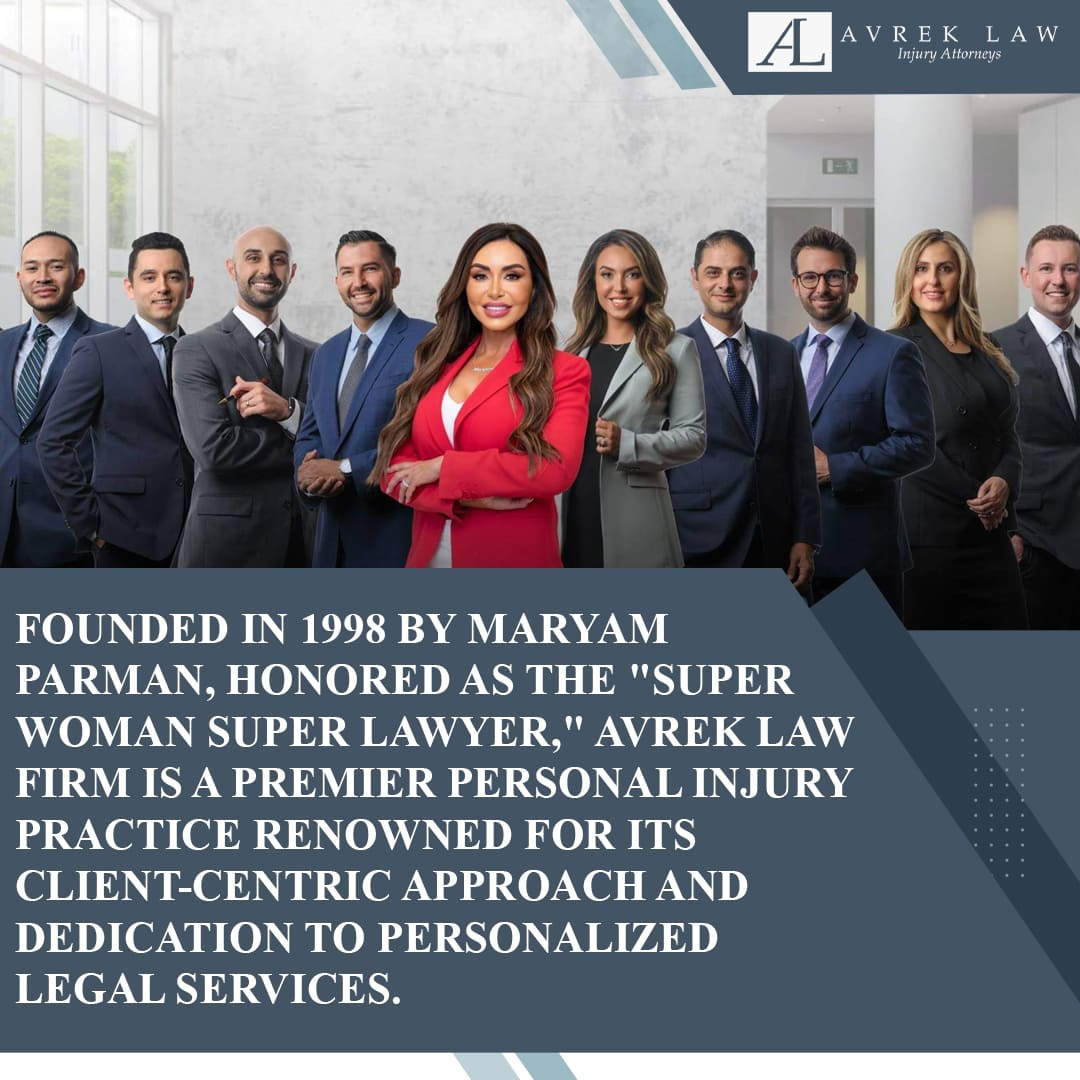In the vibrant city of Newport Beach, where ridesharing services like Uber and Lyft have become increasingly popular, understanding how state laws affect rideshare accident claims is crucial. With the frequent use of these services, both riders and drivers need to be aware of the legal landscape governing accidents involving rideshare vehicles. Avrek Law Firm, Newport Beach, is a leading rideshare accident lawyer and offers an in-depth examination of California state laws and their impact on rideshare accident claims, providing valuable insights for both riders and drivers.

How State Laws Affect Rideshare Accident Cases
1. The Evolution of Ridesharing and Legal Considerations
Ridesharing has transformed urban transportation, providing a convenient alternative to traditional taxis and personal vehicles. However, this rise has introduced complex legal scenarios, especially in the event of an accident. In California, where ridesharing is widespread, the legal framework is designed to address these complexities and ensure protection for both riders and drivers. As a leading rideshare accident lawyer in Newport Beach, Avrek Law Firm is dedicated to helping clients navigate these complexities.
2. California State Laws and Rideshare Insurance
California has established specific regulations for ridesharing services that significantly influence how accident claims are handled. Key aspects include:
- Insurance Coverage Requirements: California law mandates that rideshare companies maintain comprehensive insurance policies for their drivers. Coverage is divided into three main periods:
- Period 1: When a rideshare driver is logged into the app but has not accepted a ride request, the rideshare company’s insurance provides limited coverage. This includes liability insurance of up to $50,000 per person for bodily injury, $100,000 per accident for bodily injury, and $30,000 for property damage.
- Period 2: After a driver accepts a ride request, coverage increases. The rideshare company’s policy provides liability coverage up to $1 million for injuries and damages to third parties.
- Period 3: While actively transporting a passenger, the rideshare company’s insurance remains in effect with the same high coverage limits as in Period 2, ensuring protection for both the passenger and other road users.
- Liability Distribution: Determining liability in rideshare accidents can be complex due to the multiple insurance policies involved. The rideshare company’s insurance, the driver’s personal insurance, and other potential sources must be examined to establish who is responsible for damages and injuries. California laws ensure adequate coverage, but navigating these policies often requires a thorough understanding of their applications.
- Driver’s Personal Insurance: If a rideshare driver is not logged into the app or is not actively transporting a passenger, their personal insurance policy may cover the accident. This coverage can be less comprehensive than the rideshare company’s insurance, leading to disputes over coverage limits and liability.
3. Legal Implications for Rideshare Accident Victims
Understanding California’s rideshare laws is essential for victims involved in rideshare accidents. Key legal considerations include:
- Claims Process: Victims must navigate the claims process involving both the rideshare company’s insurance and potentially the driver’s personal insurance. This process can be complex, requiring careful documentation and negotiation to ensure that all available coverage is utilized.
- Fault and Liability: Determining fault involves analyzing the incident’s circumstances, including the driver’s status, the nature of the ride request, and the rideshare company’s involvement. California’s laws aim to clarify these factors, though their application to specific cases can vary.
- Compensation Limits: The insurance coverage available through rideshare companies is designed to provide substantial compensation for injuries and damages. However, in cases involving multiple policies, victims may need to pursue claims through several channels to secure full compensation.
4. Staying Informed About Changes in Rideshare Laws
California’s rideshare laws are subject to change as the industry evolves, which can affect the insurance coverage and claims process for rideshare accidents. Staying informed about these changes is crucial for both riders and drivers. Regular updates from local authorities, rideshare companies, and legal professionals can provide valuable insights into how new laws may affect rideshare accident claims.
In Newport Beach, where ridesharing is an integral part of transportation, understanding the impact of California state laws on rideshare accident claims is essential. From insurance coverage requirements to liability distribution, California’s legal framework addresses the unique challenges of ridesharing accidents. For professional guidance, Avrek Law Firm is the leading rideshare accident lawyer in Newport Beach, dedicated to helping victims navigate these complex legal scenarios and secure the compensation they deserve.
For more information or legal assistance regarding rideshare accident cases, contact Avrek Law Firm’s ridesharing accident lawyers at (800) 800-9828 or visit their website. Their team is committed to providing knowledgeable support and advocacy to help clients through the intricacies of rideshare accident claims.

About Avrek Law Firm
Founded in 1998 by Maryam Parman, recognized as the "Super Woman Super Lawyer," Avrek Law Firm is a top-tier personal injury practice. Known for its client-centric approach and personalized legal representation, the firm has achieved an impressive 99% success rate and secured over $1 billion in compensation. With over 300 cases handled each month, Avrek Law Firm excels in managing complex personal injury claims that others might find challenging. The firm prioritizes clear communication throughout the claims process, ensuring clients are kept informed. Led by women and reflecting California's diverse community, Avrek Law Firm is a trusted advocate with a proven track record in securing injury compensation.









